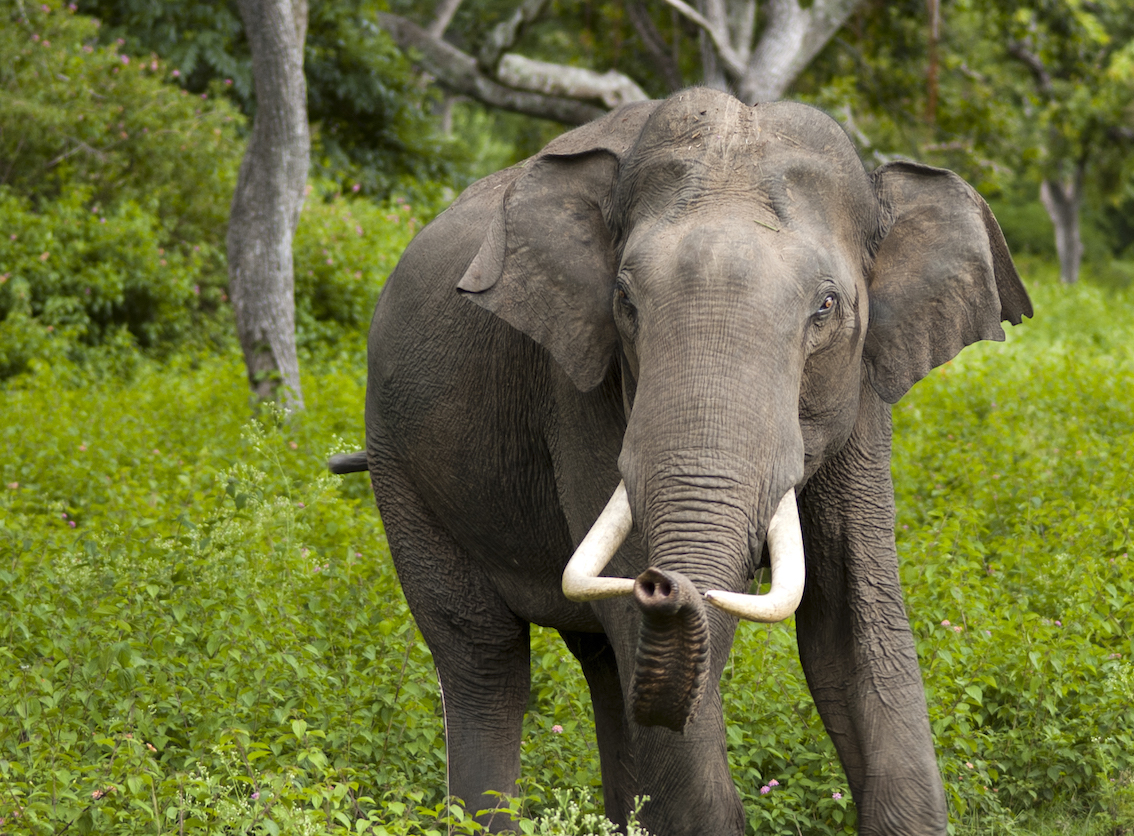China's Massive Toll On The Planet
China likes to paint itself as environmentally benign -- a nation that, while rapidly growing economically, is promoting large-scale investments in solar and wind energy -- which is true.
China also likes to herald the fact that it has recently closed down its domestic sale of ivory, the huge demand for which has driven the global decimation of African and Asian elephants.
But China as a force for environmental sustainability? That's so far removed from reality that there's only one term for it:
Pure bunk.
Predatory Force
Even a quick look reveals that China and its various state-owned enterprises, wealthy private and multi-lateral banks, overseas investors, corporations large and small, and public-private partnerships often behave in a predatory, take-no-prisoners manner -- a single-minded pursuit of profits that is causing enormous environmental harm worldwide.
Here's just a tiny sampling of what's happening right now, as a result of China's headlong sprint to exploit the planet (for a more in-depth assessment, see here):
1. China is overwhelmingly the world's biggest consumer of illegally poached wildlife and wildlife products. From Rhino horn, to Pangolins, to shark fins, to a menagerie of wild bird species, China drives much of the global trade in wildlife exploitation and smuggling.
2. Similarly, China is by far the world's biggest importer of illegal timber -- which has severe environmental impacts while defrauding developing nations of billions of dollars of direly needed timber-royalties each year. For example, China's border with Myanmar sustains an uncontrolled flood of illegally harvested or stolen timber supported by deep networks of bribery by public officials.
3. China's plans for infrastructure expansion will degrade much of the natural world. Its One Belt One Road project alone will punch new roads, railroads, ports, and extractive industries such as mining, logging, and oil and gas projects into at least 70 nations across Asia, Europe, and Africa. These projects will open a Pandora's box of environmental crises -- including large-scale deforestation, habitat fragmentation, wildlife poaching, water pollution, and greenhouse gas emissions.
4. China's pursuit of natural resources is also escalating across Latin America. In the Amazon, for example, big mining projects -- many of which are feeding Chinese industries -- don't just have serious local impacts, but also are causing widespread deforestation from the networks of roads bulldozed into remote areas to access the mines. Overall, China is the most aggressive consumer of minerals on the planet, and the biggest driver of tropical deforestation.
5. China is pushing hard to build a 5,000-kilometer-long railroad that will cut across the entirety of South America -- to make it cheaper for China to import timber, soy, minerals, and other natural resources from ports along South America's Pacific coast. If the railway proceeds, the number of critical ecosystems that would be impacted by this project is staggering.
6. China's industries and investors behave so aggressively that poor nations often become pollution havens -- with China effectively exporting its environmental degradation and pollution while enriching itself at the expense of developing nations desperate for foreign investment. The basis of this conclusion is rock-solid: a World Bank study of over 3,000 overseas projects funded or operated by China.
7. In terms of greenhouse-gas emissions, China has exploded past every other nation. It now produces more than twice the carbon emissions of the U.S., the second-biggest polluter. And China is still building scores of new coal-fired electricity plants -- by far the dirtiest fuel for producing energy and a massive contributor to global warming.
Iceberg Ahead
These examples only scratch the surface -- revealing the tip of a massive, dangerous iceberg.
Is it fair to criticize China like this? Some would say "no". They would argue that China is only following a well-trodden path of exploitative development previously forged by other nations.
But China is not the same as any other nation.
No nation on Earth has ever had the size and astounding growth of China's economy, its single-minded vision for exploiting natural resources and land internationally, its intolerance of internal and external criticism, and its increasingly closed media and official myopia.
China's leader, President Xi Jinping, freely admits that its corporations, investors, and lenders operating overseas often act aggressively, illegally, and in a predatory manner. But Xi says the Central Government is largely powerless to do anything about it -- aside from producing a few "green papers" with guidelines that are widely ignored.
Is this believable? Xi Jinping increasingly rules China with an iron hand. Is it impossible for China to guide and control its overseas industries, or are they simply so profitable that the Chinese government doesn't even want to try?
It's time to speak the truth about China. Some elements of its stunningly ambitious international schemes are positive, especially in economic terms.
But some are so dangerous that they will transform the planet -- to the benefit of China but to the profound detriment of the global environment and our natural world.







